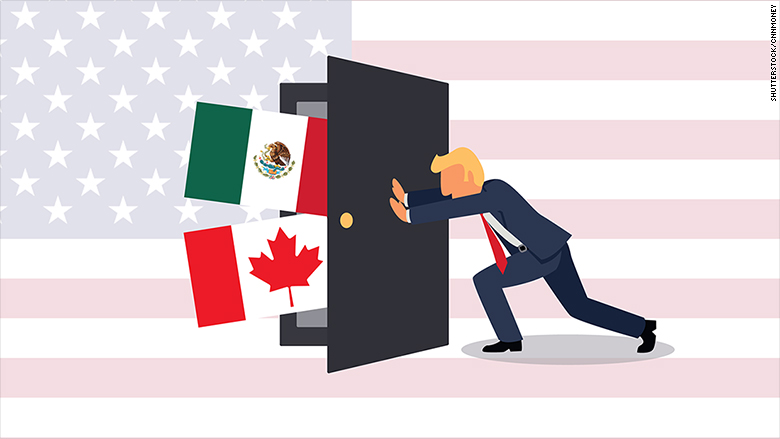
The end of the period for renegotiating the North American Free Trade Agreement, supposedly occurring today, is an imaginary line that the speaker of the U.S. House of Representatives, Paul Ryan, has imposed on the White House. So, it is an internal political matter. There are upcoming midterm congressional elections in the United States, and the balance between Democrats and Republican may change. Ryan’s warning to Donald Trump was made in case the latter was planning for the Republican majority to move the accord forward.
But if an agreement is reached among Mexico, the United States and Canada aside from the legislative deadlines, it will fall to Trump to take care of the internal politics. In the meantime, we have another treaty, the one in place.
In addition, those who understand the behind-the-scenes politics in the Capitol have already made clear that there are additional weeks available to the actual legislators, those who are in charge of the new NAFTA’s eventual approval. The point is that, behind the optics of Trump’s abusive manner of negotiating, the United States wants to use this timely issue as pressure against its commercial partners.
To Canada, the issue of time is unimportant. It does not have important political pressures approaching. But Mexico does. The July 1 elections might be a watershed, with a before and an after, a leap toward the past for this country, and the United States knows it.
But the Mexican negotiators are astute. They have already informed the United States team that, while political pressure exists, it will not be a reason for Mexico to cave in on issues of great importance to it.
For starters, the United States should clearly know that the election has not yet been held, that there is no predetermined result and that the poll results have tightened. Even more important, they also understand that Mexico will not accept any abuse during the negotiations, even if the loss of NAFTA costs us.
That is why the message is that, if the negotiations last beyond July 1, it will be necessary to accommodate the transition time of the next government. If they are still ongoing through September, it will be the role of the next Mexican congress to review whether to approve any agreement, and if the negotiations continue until December, those who arrive then should negotiate. Whatever happens, the result should be what is best for Mexico.
So we do not have to limit ourselves to the idea that the only thing that is delaying NAFTA renegotiation is who makes the dashboards or rearview mirrors for cars manufactured in the region. It is true that automobile sector rules are important, but what Trump really wants to do with NAFTA is not a form of commercializing, but of colonizing North America. He wants to meddle, to regulate Congress, the Bank of Mexico, tariffs and labor laws.
The hope of concluding NAFTA negotiations in a satisfactory manner does not depend on Paul Ryan’s timing of the Mexican elections; it depends on whether the United States wants partners and not imperial subordinates.

Leave a Reply
You must be logged in to post a comment.